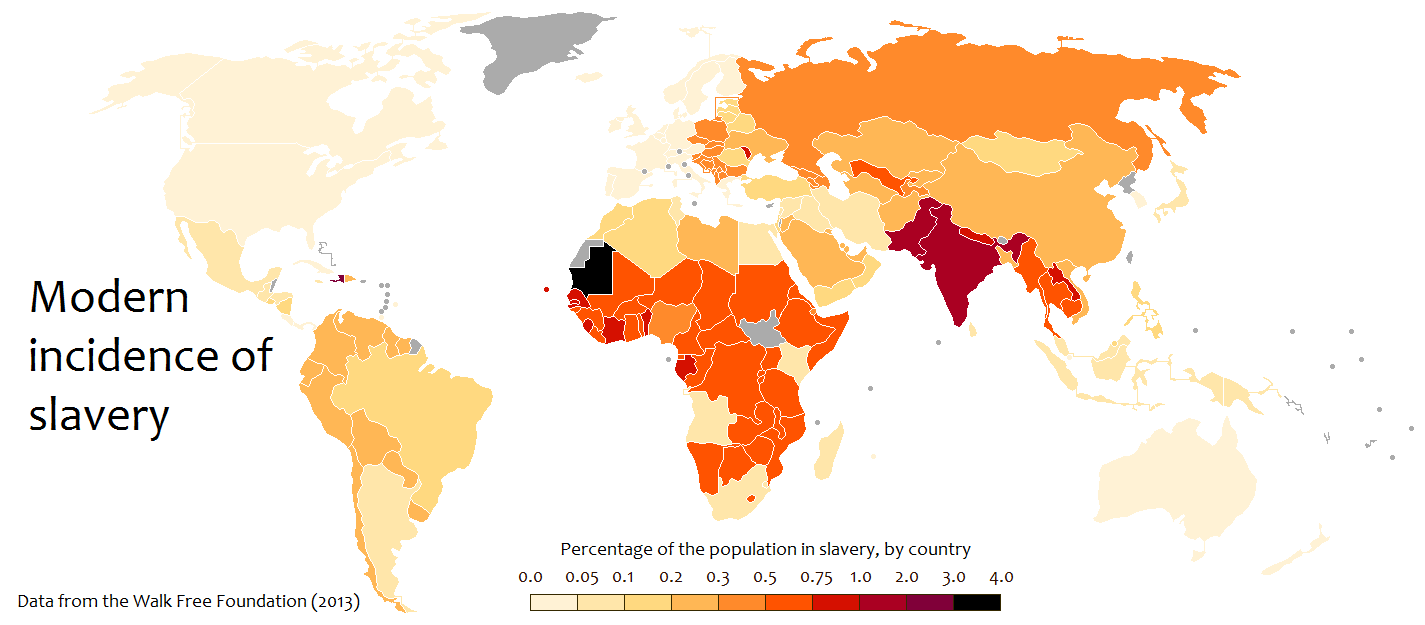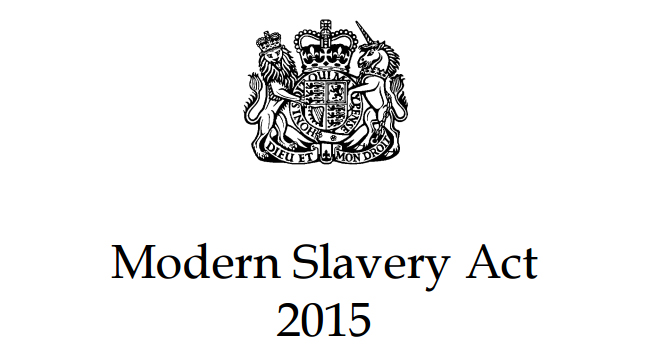The Modern Slavery Bill is now law
Introduced into the UK Parliament in June 2014, and receiving Royal Ascent last month, the passing of the Modern Slavery Bill into law is an historic moment in the fight against human trafficking and modern slavery. The landmark bill is the first of its kind in Europe and puts in place a number of tough, robust checks to help tackle slavery and its underlying causes, as well as consolidating existing anti-slavery legislation.
Introduced into the UK Parliament in June 2014, and receiving Royal Ascent last month, the passing of the Modern Slavery Bill into law is an historic moment in the fight against human trafficking and modern slavery. The landmark bill is the first of its kind in Europe and puts in place a number of tough, robust checks to help tackle slavery and its underlying causes, as well as consolidating existing anti-slavery legislation.
The Salvation Army, which supports victims of modern slavery, has seen a 62 percent increase in the number of people needing their support. Estimates place the number of victims of forced labour and slavery in Britain to be upwards of 13,000, with one in four of them children, and the government came under pressure to act before parliament was dissolved before the forthcoming general election.

Prior to the Modern Slavery Bill, existing anti-slavery law existed across three different Acts, so the Bill first deals with bringing everything together under one Act. The new consolidated offence of human trafficking will be committed when a person “arranges or facilitates the travel of another person (“V”) with a view to being exploited”. Crucially, the offence of trafficking is committed both when the person arranging the travel does so with the intention exploit, or if the person knows that the person is likely to be exploited by someone else.

The maximum sentence for the perpetrators - who are involved in a $130 billion industry worldwide - has been increased from 14 years to life, and a system of compensation has been put in place, funded by the seizing of traffickers' assets. This new “slavery and trafficking reparation order”, will allow the courts will be able to order a person convicted of a modern slavery or human trafficking offence to make financial reparation to the victim(s).
In addition to outlining punishments and sentences for the perpetrators of human trafficking and modern slavery, the Bill also puts a system of prevention measures in place. New civil orders have been created to enable the courts to place restrictions on those convicted of modern slavery offences, as well as those involved in such offences but not yet convicted. These slavery and trafficking prevention orders (STPOs) will be given out if there is a risk an individual or group may commit a slavery or human trafficking offence, and that a person or persons need protecting from the physical or psychological harm likely to occur if such an offence is committed. It is an offence for person to breach the term of an STPO, with the maximum sentence on conviction on indictment being five years imprisonment.
The Welsh Government will not tolerate any form of slavery and every effort will be made to ensure that criminals who engage in this crime are brought to justice and that survivors are supported to regain their lives
Leighton Andrews, The Minister for Public Services in the National Assembly for Wales (November 2014)
A new position has been created to deal with the issues of modern slavery and human trafficking - the Anti-Slavery Commissioner. The function of the Commissioner, is to encourage good practice in the prevention, detection, investigation and prosecution of human trafficking offences, as well as the identification of victims of the offence. The Commissioner is required to publish an annual report at the end of the year, to include an assessment of the extent to which the their objectives have been met in that year. Ex-Metropolitan Police Detective Inspector Kevin Hyland is the first UK-wide Anti-Slavery Commissioner appointed under the new legislation, although the position has existed in Wales since 2011, with the current Commissioner being Stephen Chapman. Like their UK-wide counterpart, the role of the Welsh Anti-Slavery Commissioner produces an annual report detailing what has been done to tackle slavery in Wales. Wales has been at the forefront of recognising and dealing with the issue of human trafficking and modern slavery and supporting survivors, leading the way for the UK adopt similar practices.
You can read more about the UK Parliament's Modern Slavery Act 2015, and download a copy of the full bill here
You can read more about the efforts of the Welsh Government to tackle modern slavery and human trafficking here